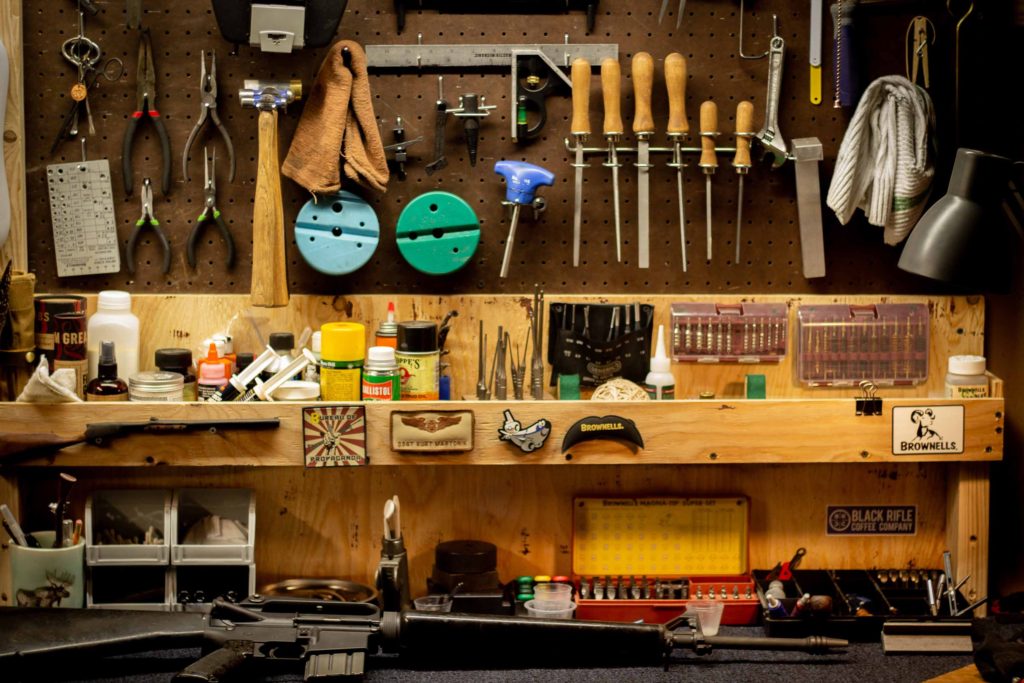
Most serious gun guys and gals need to be able to do a limited amount of work on their guns at home. The at-home setup might be something as simple as a toolbox being opened up on the kitchen table to a full-blown workbench or room designated for the purpose. Your setup really doesn’t matter; you need the right tools for the job.
The few essential gunsmithing tools that every gun owner should have are; hollow ground screwdrivers, bench blocks, punches, hammers, alignment pins, and a torque wrench. Having these tools will allow you to accomplish most tasks that you may need to do at home.
All of these can be had for less than a couple hundred dollars and will greatly enhance your ability to work on and maintain your firearms for years to come.
Affiliate Disclosure: This article may contain affiliate links. When you use these links, I earn a small commission from each sale generated at no cost to you. This commission helps me continue to put out free content. I work a full-time job that I am very happy with; therefore, I don’t need this commission and am not obligated to speak highly of any product. Everything written is my own opinion: the good, the bad, and the ugly.
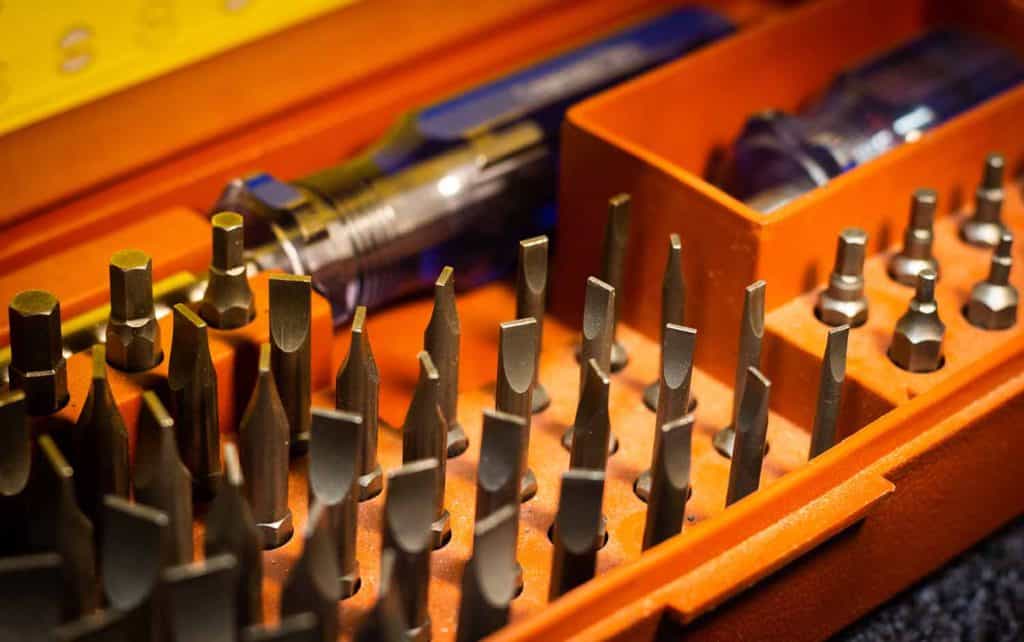
Hollow Ground Screwdrivers
Hollow ground screwdrivers are the single most important and most used tool on the home bench. The tips on hollow ground screwdrivers differ from your traditional hardware store screwdriver. The tip on the screwdriver is ground to be parallel as opposed to a wedge on most standard screwdrivers. The parallel tip gives you more contact with the screw head slot, making it less likely for the screwdriver to slip out and damage your screw or, worse yet, your gun.
Screwdrivers aren’t a sexy tool to buy. In fact, it hurts to invest in that first set. There are a few options on the market for hollow ground screwdriver sets. I personally prefer the sets that have removable hex-style tips. The Brownells Magna Tips are by far my favorite. Each bit is numbered by size and replaceable, meaning that when you need to grind a unique bit to fit an odd screw head size, you don’t have to feel bad about grinding on one of your bits as you can simply order another one.
Many interchangeable handle styles are available, including a ratchet and torque wrench. On top of that, Brownells guarantees them forever. If you break a bit, give them a call, and they will replace it.
Use coupon code KTG10 to get 10% off your order of $150 or more at Brownells.
Buying Options
There are a few options within the Brownells sets. The 58-Bit Master Screwdriver Set will cover just about every scenario you might find yourself in. The 22-Bit Starter Screwdriver Set is a great place to start and can be later updated to the full 58-bit set if needed. Although I have no experience with the Wheeler sets, they are more affordable than the Brownells set. They sell an 89-piece and 43-piece set, and their bits and handles are interchangeable with the Brownells sets.
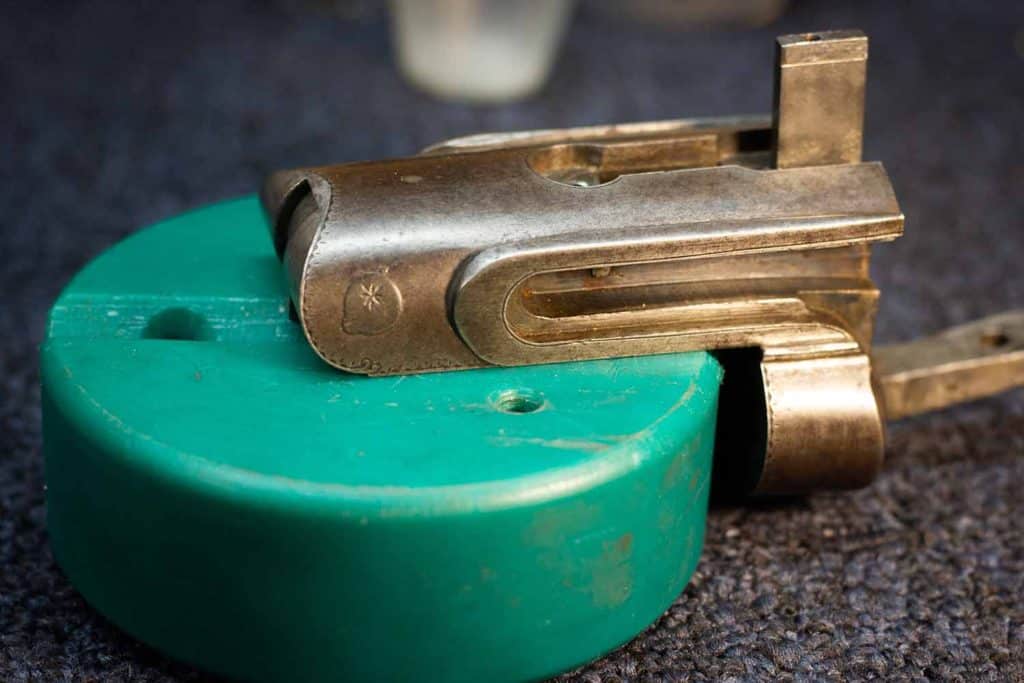
Bench Block
The bench block is one of the most underrated tools on the gunsmith’s bench. They help hold your work in place while driving out pins and disassembling a firearm. Bench blocks come in many shapes and forms, and you may find that you need more than one. I have five different ones on my general disassembly bench and a couple more on my stockmaking bench.
They are made of many different materials, all of which need to be non-marring. Meaning they shouldn’t scratch or dent your firearm or its finish when in use. Most of these will be made of some sort of synthetic material or polyurethane blend.
Buying Options
Fortunately, bench blocks are much cheaper than gunsmith-specific screwdrivers. Most can be had for less than $25 and will quickly prove their worth. Here is a link to the available bench blocks at Brownells.com.
Another option is to make your own using a hockey puck. If you are interested in this option, I wrote this article on doing just that. Home Gunsmithing: Make Your Own Bench Block
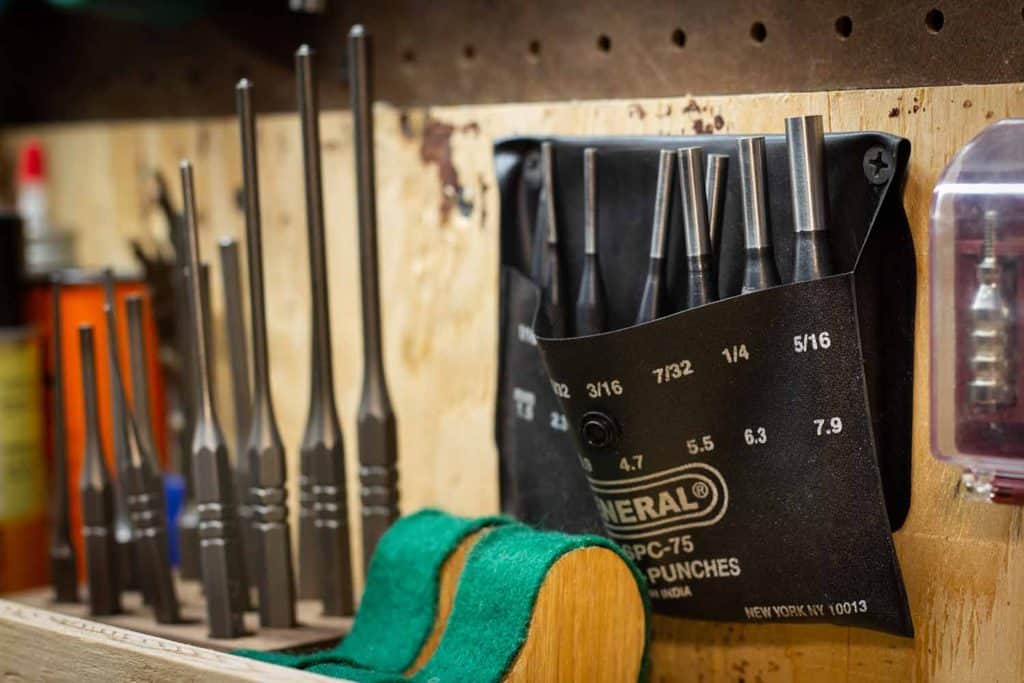
Punches-Brass or Steel?
A punch set is an absolute necessity on every bench. Most firearms require any number of pins to be removed during disassembly and cleaning. A punch set combined with a good solid bench block will make driving pins out a breeze.
There are tons on the market. Both brass and steel are widely used in gunsmithing. I use both very frequently, depending on the job I’m performing. For starters, I recommend a decent set of brass punches like this set made by Grace USA. Brass punches will bend sooner or later; knowing how to straighten them out is a skill in itself. If you are constantly bending, that means that you are hitting them too hard and may need to move to steel for that particular pin.
Buying Options
A quality brass punch set can be extremely expensive. Fortunately, there are many other options out there for the hobbyist. This set, made by Wheeler Engineering, is a good starting point for the budget-minded person.
One important note: Keep the tips of your punches in good shape and free of any major dents and dings. This keeps you from accidentally scratching your firearm or even peening a pin accidentally.
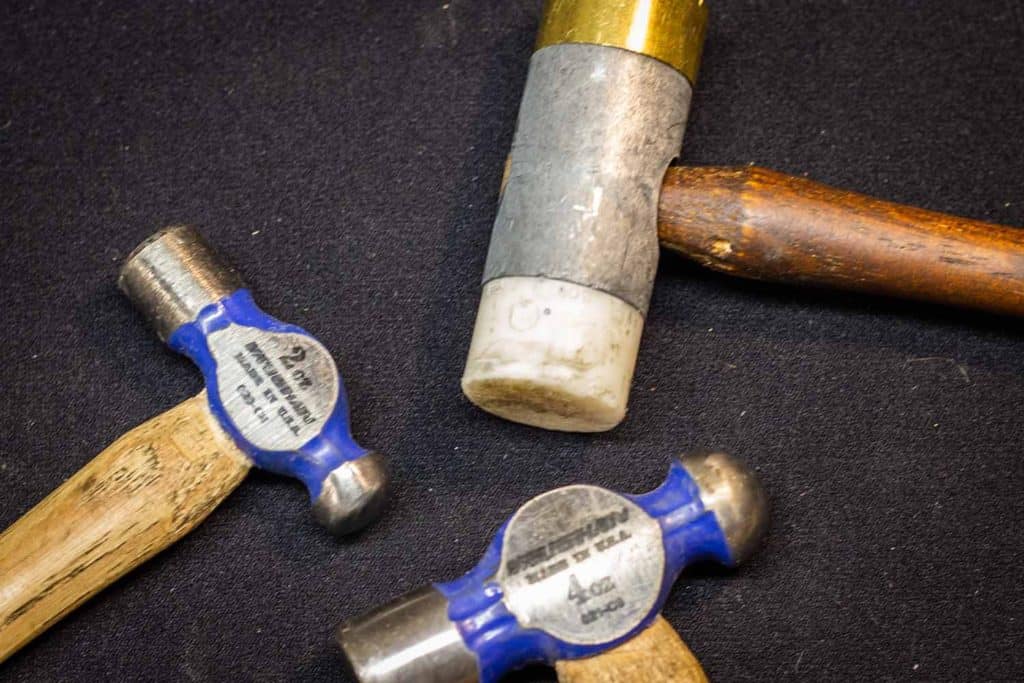
Hammers
Your hammer matters. Plain and simple. Yes, you can get away with using the household hammer, but you are just asking for trouble at that point. The hammer that you use to drive out pins should be dictated by the type of punch you are using. Brass punches-brass hammer, steel punches-steel hammer.
The weight of the hammer is also important. I start every disassembly with a 2 oz Vaughan ball-peen hammer. For the majority of the pins, this is enough. I’ll progressively move up to a 4 oz, then an 8 oz until the pin is removed. A clean plastic-faced hammer is also very useful when striking a finished surface.
Buying Options
For ball-peen hammers, I’ve had really good luck with the Vaughan brand, which is labeled as Grace USA on Brownells. The removable tip hammer that Brownells sells is a great option for brass and plastic hammers. It allows you to replace damaged or broken tips.
Just like with your punches, keep your hammer faces clean and undamaged.

Alignment Pins
Alignment pins are another great underrated tool that I went too long without. For general gunsmithing, they are easily the most valuable tool on my bench. Assembly is made so much easier when using a properly fitting alignment pin.
Alignment pins are tapered and made of steel, so you must resist the urge to drive a pin in or out with them, as it will damage the pinhole. They are used strictly for aligning parts to aid in the reassembly of a firearm.
Buying Options
I personally use this set from Brownells. It is affordable at $22.99 and will last multiple lifetimes if taken care of properly.
Alignment Pins: Why You Need Them On Your Bench
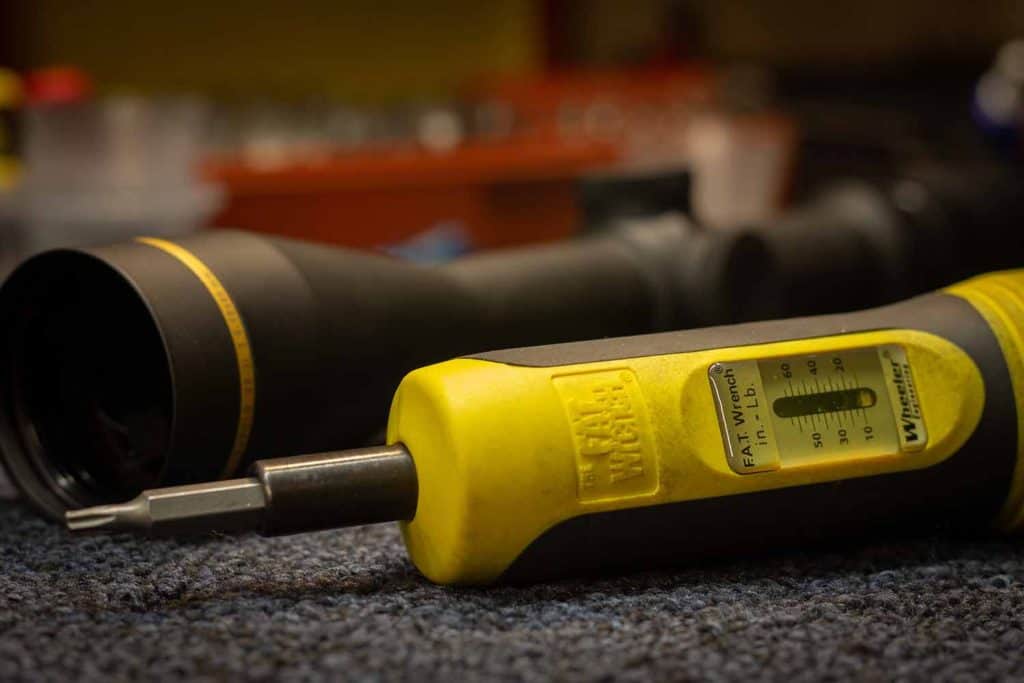
Torque Wrench
Lastly, a torque wrench that is rated for inch-lbs. While this may not be necessary for someone starting out, it should be heavily considered. It is a very versatile tool that is mainly used for scopes and scope mounts.
If you are a reloader, you need one of these. Aside from mounting scopes, the torque wrench is super useful in getting the most accuracy out of your rifle. Experimenting with your action screw torque setting usually results in tighter groups. I test this extensively in the article below.
The Pursuit of Rimfire Accuracy Part Three: Action Screw Torque
Buying Options
Torque wrenches can be pretty expensive. They are extremely useful, though, and will prevent you from stripping out a hole in your aluminum scope rings. I use the classic Wheeler FAT Wrench and have found no reason to try any other one.
The Big Takeaway
For those of you starting to build up your own home gunsmithing bench, it is easy to obsess about having all of these specialized tools. The list of tools above is a great starting point, but you can definitely get by without some of them. Try not to get to invest in those specialized one-time-use tools and invest in the frequently used quality ones.
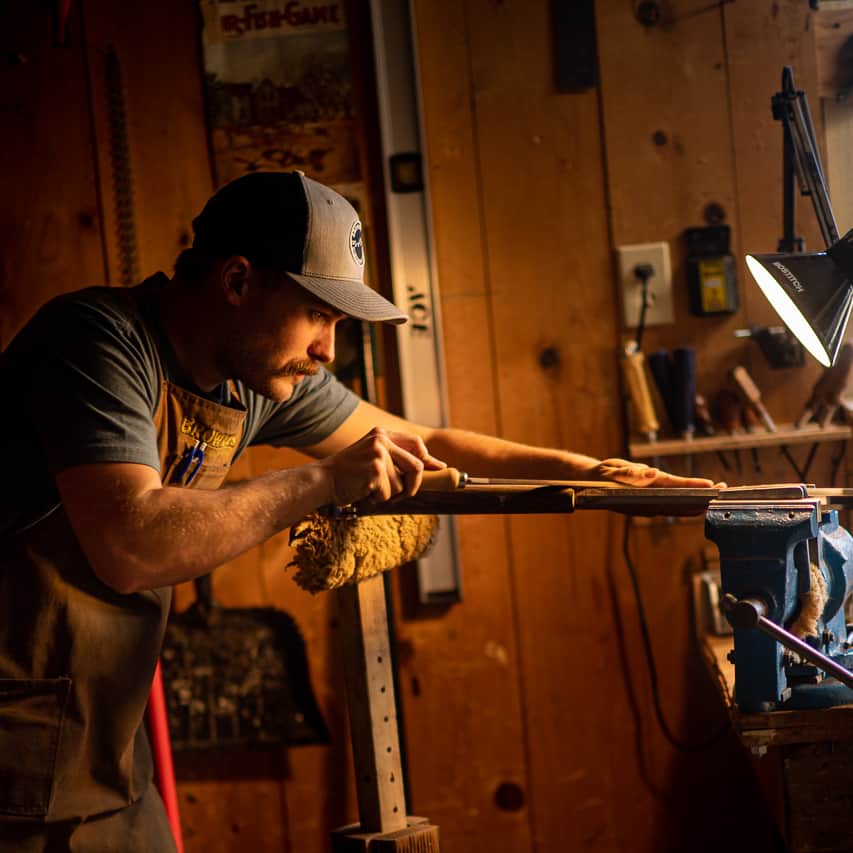
Written by: Kurt Martonik
Kurt is a Gunsmith, Reloader, Hunter, and Outdoorsman. He grew up in Elk County, Pennsylvania, where he became obsessed with the world of firearms. Following high school, Kurt enlisted in the United States Air Force as a Boom Operator, where he eventually rose to the position of Instructor. After his military service, he attended the Colorado School of Trades(CST) in Lakewood, CO for gunsmithing. Following graduation, he accepted a job at C. Sharps Arms in Montana, where he worked as a full time stockmaker and gunsmith.